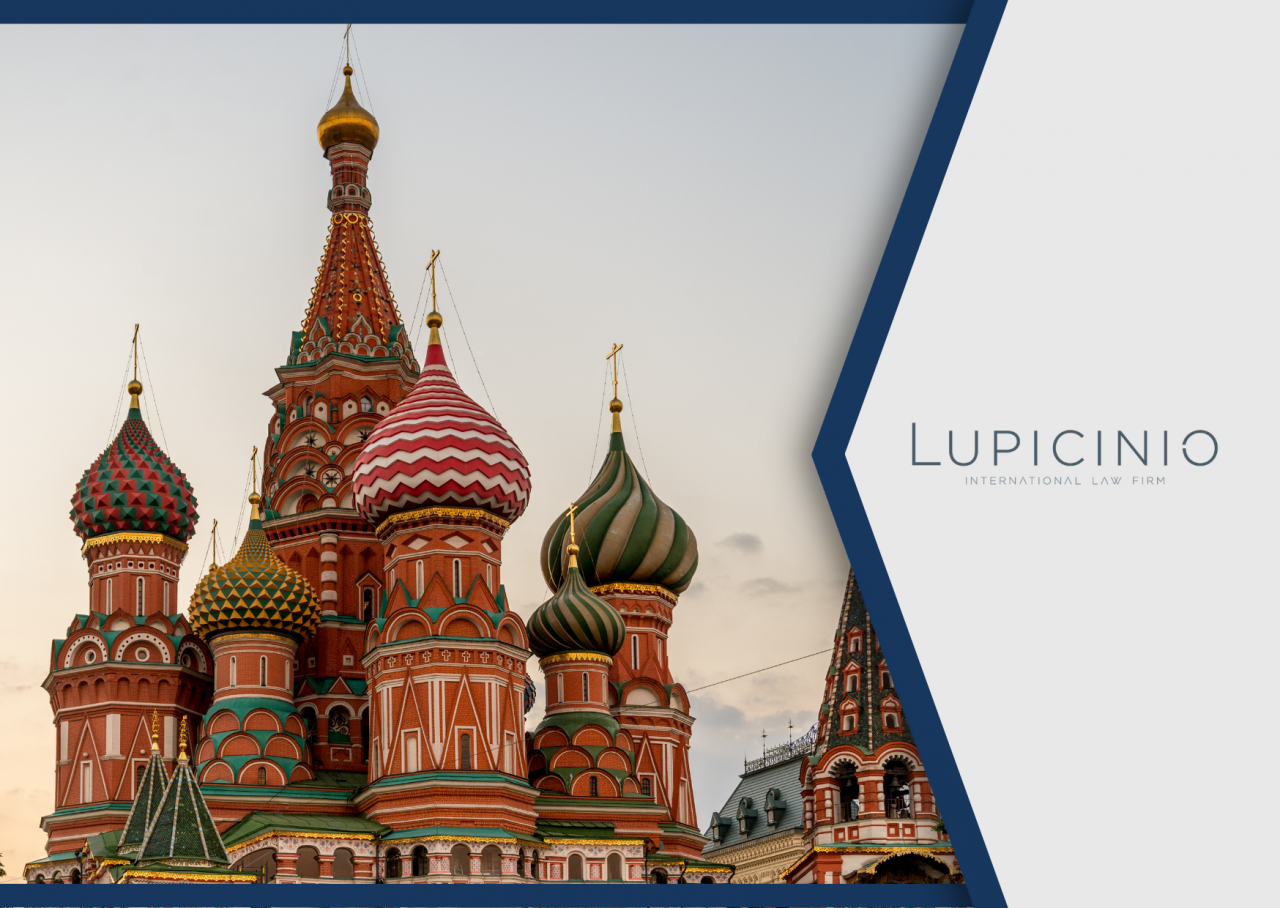Whereas a lot of attention is drawn to the problem of enforcement of arbitral awards against Russian parties, it must be noted that Russia is still a seat for numerous arbitral proceedings. Also, many parties, especially from the former USSR states, may have assets located in Russia, while, notwithstanding the fact that the former Soviet Republics have gone a long way of sovereign political and economic development, Russia remains the hub for the Eurasian space. The enforceability of awards rendered by ad hoc arbitration tribunals against assets in Russia poses a particular legal question. The answer to this is: under certain conditions. Below the readers will find a quick update on the relevant approaches demonstrated by the recent Russian legislation and court practice.
Ad hoc arbitration is not a very popular mode of arbitration when it comes to Russian parties, and there is a reason behind it: the government has imposed many restrictions on it. However, certain types of international disputes, such as in the insurance sector, very often proceed in the ad hoc format, and a party might need to enforce the arbitral award rendered in the Russian Federation. To understand the risks and opportunities, let’s turn to national legislation on the issue.
Firstly, the approaches of the Russian courts to the enforceability of arbitral awards are based on two main national laws: the law «On Arbitration»[1] and the law on «International Commercial Arbitration»[2]. The first law governs national, domestic arbitration. The second governs arbitration involving a «foreign element», such as when one of the parties is domiciled outside of Russia. A third major legal source is the Resolution of the Plenum of the Russian Supreme Court №53 from 2019[3], which serves as an official commentary on the mentioned laws. Notably, the provisions of this commentary are obligatory to be adhered to by the courts.
The Russian law on international commercial arbitration (further referred to as the ICA Law) is based on the UNCITRAL Model law and was adopted in 1993. The law on international commercial arbitration governs the procedure which involves the so-called foreign element, thus one of the parties must be domiciled abroad.
While this is a rule of a thumb, Article 3 of the law provides for more grounds when a case may be resolved in international arbitration and the law is to be applied: “[when]…the place of business of at least one party is located abroad or if any place where a significant part of the obligations arising from the relations of the parties is to be fulfilled, or the place with which the subject of the dispute is most closely connected is located abroad, as well as [to] disputes arising in connection with the implementation of foreign investments in the territory of the Russian Federation or Russian investments abroad.”
It is important to note that the ICA law itself does not mention ad hoc tribunals. However, since the launch of the much-criticized arbitration reform in 2017 numerous consecutive amendments to the law were made in 2018 and 2021, which first and foremost affected the ad hoc mode. In particular, these changes are relevant to Chapter VIII of the law, which governs the enforcement and recognition of both Russian and foreign arbitral awards. A rock upon which the outcome of many arbitrations turned into a shipwreck is the provision on the non-compliance with the public policy contained in paragraph 2, part 2 of Article 36 of the ICA Law.
Russian courts have many times underlined that non-compliance with public policy is (inter alia, but first and foremost) non-compliance with Russian national laws. And this is why even in international cases one has to look into the law on domestic matters. The law on domestic arbitration provides in Paragraph 3 Article 44: “…Awards rendered by an arbitral tribunal in the territory of the Russian Federation administered by foreign arbitral institutions that are not recognized as permanent arbitral institutions in accordance with this Federal Law shall be considered in the territory of the Russian Federation as arbitral awards adopted by an arbitral tribunal formed by parties to resolve a specific dispute.”
The formula “to resolve a specific dispute” is used to refer to ad hoc tribunals.
The law further provides in Paragraph 4.1: “The right to exercise the functions of a permanent arbitral institution is granted to a foreign arbitral institution that is included in the list of foreign arbitral institutions approved by the authorized federal executive body that are recognized as permanent arbitral institutions in accordance with this Federal Law.”
Thus, the effect of the amendments to the ICA Law can only be drawn from reading the ICA Law in conjunction with the law on domestic arbitration. This effect is that ad hoc arbitral awards are deemed valid and enforceable when the ad hoc proceedings were administered by a registered arbitration institution.
Such a conclusion is manifested in Paragraph 50 of the Supreme Court Plenum Resolution: “Arbitral awards rendered by an arbitration court which is formed by parties to resolve a specific dispute (ad hoc) in violation of the prohibition provided by part 20 of article 44 of the Arbitration Law, are considered to have been made in violation of the procedure provided by federal law.” As we see, it points to Article 44 of the Law on (domestic) Arbitration, requiring one to obtain a license to conduct arbitrations in Russia.
Russian court practice has consecutively, up to a recent judgment of the Commercial (Arbitrazh) Court of Moscow[4] dismissed awards that were rendered by ad hoc tribunals outside of licensed arbitral institutions, or by arbitral institutions whom such decisions have not been granted. This court practice is based on the arbitration law applicable to domestic arbitration.
The law directly addresses the situation, where the seat of arbitration is in Russia. In this case, an award rendered by an ad hoc tribunal will only be valid when the proceedings were administered by a permanent arbitration institution possessing the license.
Among international ones, these are the ICC, HKIAC, SIAC, VIAC. Although the list is open, it is not likely that other foreign arbitral institutions will apply for the license anytime soon. Among national institutions empowered to conduct international arbitration, these are the MKAS – the oldest official arbitral institution in Russia founded in 1932 in Soviet times, the AC RSPP (Arbitration Centre at the Chamber of Commerce of Industrialists and Entrepreneurs), the RAC, the Russian Technology Corporation (Rosteh) Court, the Gazprom court and the National Centre for Sports Disputes for sports arbitration.
Interpreting this provision, the law stipulates that if at least one of the arbitrating parties is non-Russian (e.g. let’s make the example a bit more complex and say the dispute is between a Spanish and a Kazakh entity), the seat of the ad hoc proceedings is in Moscow, and the enforcement is sought against property in Russia, the court will issue a warrant only when the ad hoc was administered by a licensed permanent foreign or domestic institution (a recent example when an ad hoc tribunal comprised of a Russian and 2 foreign arbitrators decided on an international dispute and the winning party successfully obtained enforcement was the Ruling Commercial (Arbitrazh) Court of Moscow №А40-264409/2019[5]). The law is silent on other possible variations.
It is relevant to ask what happens if an ad hoc award with enforcement against assets in Russia was issued somewhere else. Both laws on arbitration as well as the Resolution №53 are silent on this. Here the logic of the lawmaker is to be read from the law on domestic arbitration, which does not allow for the free, non-institutional ad hoc.
This is why we deem that an attempt to enforce an ad hoc award rendered without the administration by a recognized arbitral institution will be bound to fail. On the contrary, ad hoc awards rendered under institutional administration have a good chance to secure an enforcement warrant in Russia.
[1] Federal Law on Arbitration in the Russian Federation, adopted 29 December 2015, No. 382-FZ. Available from Russian legal database Consultant at http://www.consultant.ru/document/cons_doc_LAW_191301/. (Only in Russian).
It is crucial to mention that while some websites offer an English legal translation, this translation covers versions of the law dating back to 2015 or earlier and is valuable for first reading only. Professional use requires a quality translation of the latest version of the law. The same is applicable to the footnote below.
[2] International Commercial Arbitration Law, adopted 7 July 1993, No. 5338-I. English translation is available on the website of Russia’s International Commercial Arbitration Court, http://mkas.tpprf.ru/en/lawstatus/legal_status/law/.
[3] Resolution of the Supreme Court’s Plenum on the State courts’ role in the arbitration proceedings, adopted 10 December 2019, No. 53. Officially published in Rossiyskaya Gazeta, https://rg.ru/documents/2019/12/25/plenum-dok.html. (Only in Russian).
[4] Case №А40-232370/2021. Accessible in Russian at https://kad.arbitr.ru/Document/Pdf/873e4cc8-0c56-40d4-a17c-2a5da5145f2c/e30be8ab-bb09-4013-82cd-d61f76a4a8ef/A40-232370-2021_20220127_Opredelenie.pdf?isAddStamp=True. VPN access may be required as Russian official bodies often block access for users with foreign IP addresses since March 2022. (Only in Russian).
[5] See at https://kad.arbitr.ru/Document/Pdf/aaa3fec2-96a5-4c0c-85a4-18db9d51418a/ae935105-23dd-481c-ad47-8e4e32b39e73/A40-264409-2019_20200821_Opredelenie.pdf?isAddStamp=True. (Only in Russian).
Author: Dmitry Artyukhov
CLUST-er Lupicinio – International Business and Arbitration Lawyer, LL.M.
******
More information:
Lupicinio International Law Firm
C/ Villanueva 29
28001 Madrid
P: +34 91 436 00 90
info@lupicinio.com






